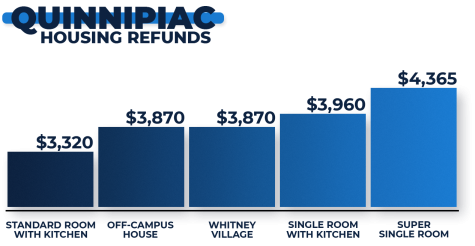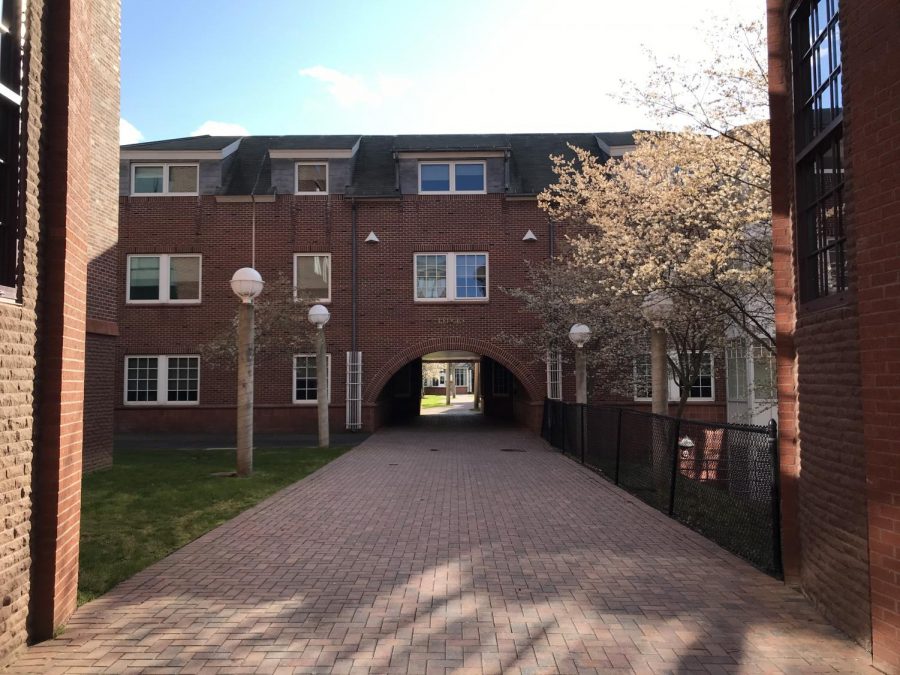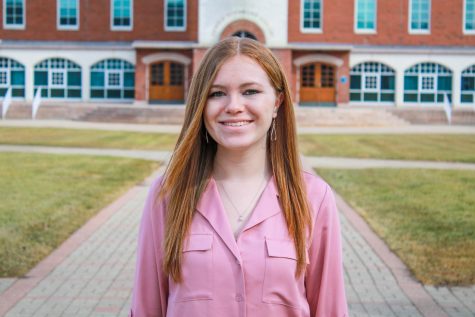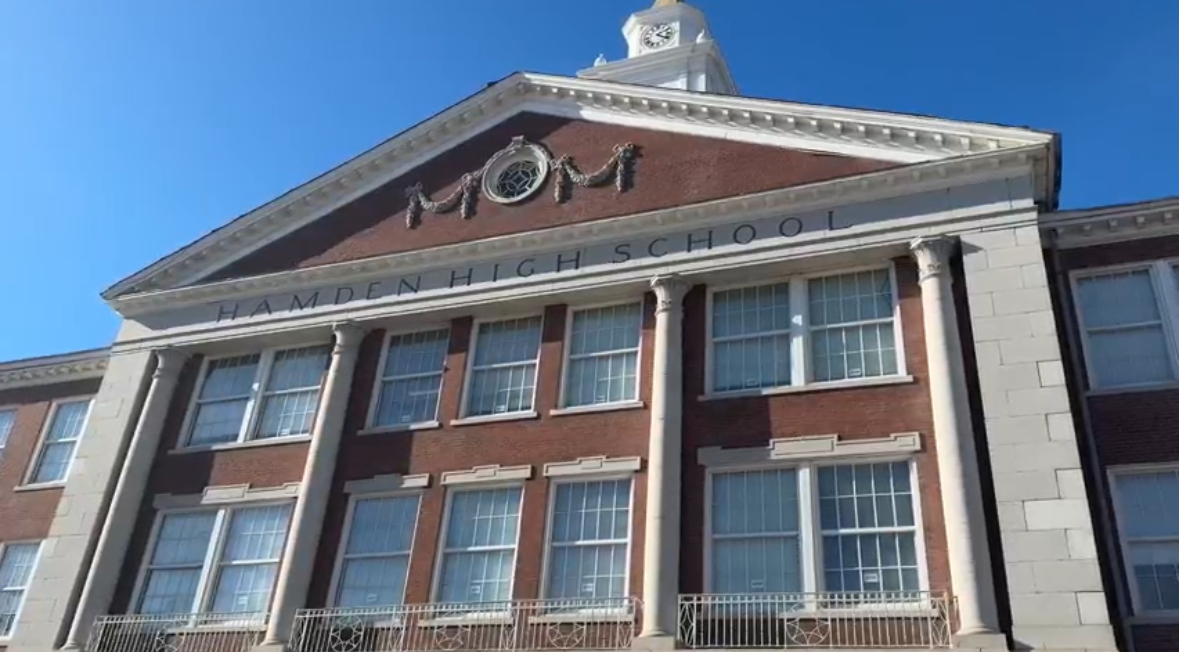Quinnipiac begins to address $40 million in costs associated with coronavirus
Students to receive housing and dining refunds
April 23, 2020
When Quinnipiac closed university housing for the remainder of the semester on March 15, students were promised refunds for housing and dining plans. The amount being refunded to each student varies based on which residence hall they lived in and how much money they had left in their meal plan balances. Quinnipiac families received an email from Chief Financial Officer Mark Varholak on Wednesday, April 22 outlining how refunds will work.
“We know you have waited for answers on housing and dining credits,” Varholak said. “We have been working through the university’s plan to address the $40 million in costs associated with the coronavirus that we are facing.”
Students who lived in university-owned housing during the spring 2020 semester will receive a full, prorated refund from March 15 through the end of the semester. Each housing type costs a different price to live in, so the amount that students will be credited with varies as follows:

Standard room (including relocated Larson, Perlroth & Troup students): $3,115
Standard room with kitchen: $3,320
Off-campus house: $3,870
Whitney Village: $3,870
Single room with kitchen: $3,960
Super single room: $4,365
Students returning to Quinnipiac will receive this money as credit toward the fall 2020 semester. It can be applied to the costs of tuition and room and board. This helps to accommodate students planning to live off campus next academic year. If a student does not plan to register for the fall 2020 semester, the credits may be used during the spring 2021 semester as well.
“We are taking this action now in the hope that this credit will provide some measure of financial relief for families regarding their fall invoices, which will be posted in approximately eight weeks,” Varholak said.
Graduating seniors will receive their housing credits in their bursar accounts. The left over balance will be refunded at the end of the semester either through direct deposit or a paper check.
Unused meal points will also be fully credited. Returning students, living on or off campus, will be allowed to use these points for the entire 2020-2021 academic year at all campus dining service locations.
“If a student’s dining credit exceeds $1,000, the dollar amount over $1,000 will automatically be credited to the student’s bursar account,” Varholak said. “The credit will appear under “estimated credits” on the student’s Fall 2020 invoice and can be applied toward tuition and room and board costs for next year.”
Students graduating this May will be credited in their bursar accounts for all unused meal points. They will be refunded when final grades are posted in a check or direct deposit form. If students are not already enrolled in Quinnipiac’s direct deposit system and would like to be refunded that way, they can enroll on their WebAdvisor accounts.
Refunds will not be provided if housing and/or dining points were paid for by the university.
According to Quinnipiac’s COVID-19 FAQs page, students will not be refunded for unused Q-cash.
“There is no need to request this money. Q-Cash funds carry forward from year to year,” the FAQs page said. “For graduating students, we will follow our typical procedure and credit student accounts as part of your overall refund/balance due calculation.”
3+1 students completing their bachelor’s degrees will be considered returning students, not graduates, in this case due to the fixed tuition rate four all four years of their programs. This means that they will also be credited for their fall 2020 tuition and room and board costs.
Families have the option to donate their housing and/or meal plan points to those in need instead of receiving refunds. Housing credits will go toward the Quinnipiac’s Student Care Fund. Meal points can be donated to the Bobcat Food Share Program, which gives Quinnipiac students facing food insecurity meals. Those interested in donating should email [email protected] before April 30.
Quinnipiac is still waiting for guidance from the U.S. Department of Education to learn how funds from the federal stimulus package can assist with more financial needs during this time.
“It is our understanding that any use of these funds will require students to have a Free Application for Federal Student Aid (FAFSA) on file for 2019-2020, so we recommend you complete a FAFSA if you have not already done so,” Varholak said.
More information about housing and dining refunds is available on Quinnipiac’s COVID-19 FAQs website.







